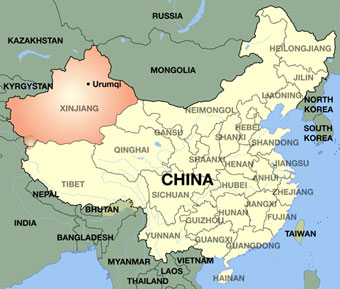China looks to break oil and gas monopoly with new structure, further reforms
The Chinese government is moving forward with plans to shake things up at its oil and gas monopolies.
Reports say China will take the oil and gas transportation operations currently under the control of state-giants China National Offshore Oil Corp (CNOOC; ticker: CEO), China National Petroleum Corp (CNPC), and Sinopec Group (ticker: SNP) and form a new crude oil and natural gas pipeline company, according to China Securities Journal. The move is hoped to break up a monopoly in the country’s energy sector as China continues to reform its oil and gas industry.
The China Securities Journal report did not cite any sources for the information or give a time frame for the move, but said the government is still deciding whether to carry the plan out in stages or implement it all at once.
Reforming China’s oil and gas industries has been a priority for Chinese President Xi Jinping. Jinping has tried over the last year to open up the Chinese oil and gas markets by allowing greater inclusion of independent companies to drive competition. Even as demand weakens, China remains the world’s largest crude importer, and an important global player.
Nelson Wang, an oil and gas analyst with CLSA China, believes that midstream reforms will include opening access to gas pipelines and construction of liquefied natural gas (LNG) receiving terminals to independent operators, reports Business Spectator. In the downstream sector, Wang expects the government to gradually allow private companies to import crude oil by removing the ban on usage of imported crude liquids.
Exploration and refining also targeted as ways to open China’s market
 China has taken several steps in the last year to loosen restrictions on its oil and gas industry. In July, the Chinese government announced that it would open six oil and gas blocks for private companies to explore in the Xinjiang region in northwest China.
China has taken several steps in the last year to loosen restrictions on its oil and gas industry. In July, the Chinese government announced that it would open six oil and gas blocks for private companies to explore in the Xinjiang region in northwest China.
China’s Ministry of Land and Resources said that it hoped the move would “stir up market vigor,” but obstacles remained. The quality of the reserves the government planned to offer was still unknown, and the location and complex geology of the region added to the difficultly associated with recovering the reserves in place.
In August, the Ministry of Commerce announced that it would grant licenses to two independent refineries to directly import crude oil, a significant shift considering about 90% of China’s crude imports had gone to state-controlled companies like SNP prior to the decision. The Chinese government is continuing to expand the pool of companies to which it will award crude oil import quotas in a bid to strengthen demand.
“The granting of more crude import quotas to the independents is likely to provide further support to crude imports and exert more pressure on fuel oil imports towards year-end, with the impact expected to be more pronounced in 2016,” said Wendy Yong, an analyst with energy consultancy FGE.







